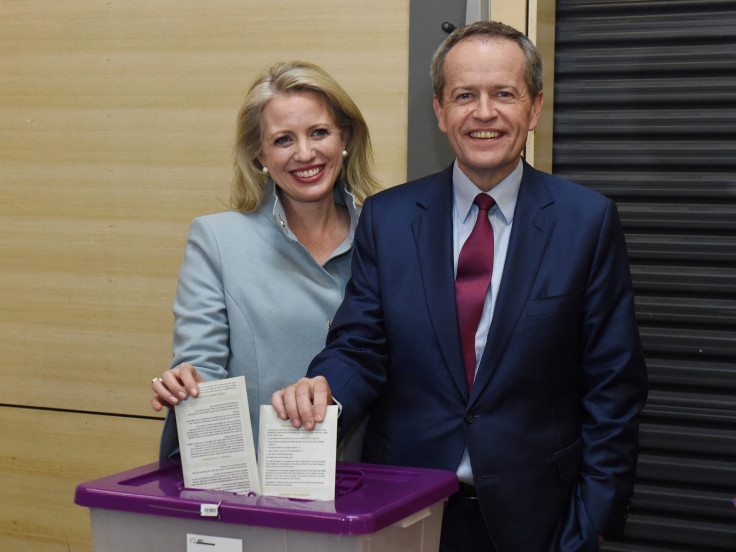Australia Election 2016: PM Malcolm Turnbull Expected To Return To Power

The first polls closed Saturday in Australia’s federal elections, a tight race between the center-right Liberal-National Coalition government led by Prime Minister Malcolm Turnbull and the center-left Labor Party led by Bill Shorten.
More than 10 million people were expected to vote Saturday on top of 4 million who voted early. Polls opened at 8 a.m., local time, across the country (8 p.m. EDT) and closed at 6 p.m. Polls will close later in western Australia, which is two hours behind the east.
The governing Coalition party is reportedly expected to win but by a narrow margin. The Brexit had helped Turnbull’s chances, reports say. Turnbull assured voters that he could deliver “economic certainty” in light of the United Kingdom’s European Union referendum where the U.K. voted to leave the EU. The former lawyer and investment banker also promised to deliver tax cuts for workers and small businesses.
If Shorten wins Saturday's election, he will be the country's sixth prime minister in as many years. But, the chances of Shorten winning the elections are unlikely, the BBC said, despite the Opposition leader putting up a good fight. Shorten promised that if elected his first order of business would be to legalize same-sex marriages.
Voting is compulsory in Australia and can lead to turnout of more than 90 percent. It is even considered some sort of celebration with barbeques having reportedly become an almost mandatory part of the voting process. Shorten even delivered lamingtons, traditional chocolate and coconut-covered cakes, as he warned against reelecting the coalition.
“The cuts are severe and they are real,” he reportedly said, referring to the coalition's health and education policies.
Reports said that a hung Parliament is also possible with Turnbull having to woo minor parties to come over to his side. A BBC analysis said that there was a growing disinterest among Australians when it came to major parties.
The left-wing Australian Greens party that currently boasts of 10 Senators and one member of Parliament is expected to win more seats, primarily in inner-city areas where climate change and the treatment of refugees are major concerns.
Meanwhile in southern Australia, the centrist independent Nick Xenophon Team is expected to do well and might just play a major role if a hung Parliament is declared.
A variety of minor parties such as the Liberal Democrats, Family First, Rise Up Australia, Health Party and the Australian Sex Party are also running for seats in the lower and upper Houses. Results will begin to come in after polls close with the outcome expected a few hours later.
© Copyright IBTimes 2025. All rights reserved.






















